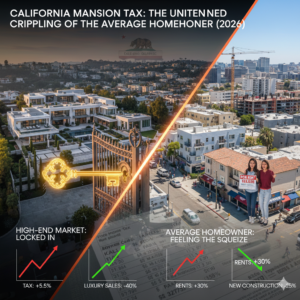 This federal housing bill is a significant move in the right direction for California homeowners. It will aid in stabilizing our economy and help stem foreclosures, while also providing support to first-time homeowners.
This federal housing bill is a significant move in the right direction for California homeowners. It will aid in stabilizing our economy and help stem foreclosures, while also providing support to first-time homeowners.
The legislation will assist an estimated 400,000 homeowners facing foreclosure, many of whom reside in California, by allowing them to refinance their current mortgages with a Federal Housing Administration (FHA)-backed loan. The bill also will permanently increase FHA, Fannie Mae, and Freddie Mac loan limits in high-cost areas.
The bill permanently increases the conforming loan limit to $625,500. In February, the Economic Stimulus Act of 2008 was signed, temporarily raising the conforming loan limit in high-cost areas to $729,750 from $417,000 until December 31, 2008.
The new permanent loan limit of $625,500 will allow California homeowners to refinance their loans into safe affordable loan products and allow first-time home buyers to enter the market.
The new loan limits for Fannie Mae and Freddie Mac are the greater of either $417,000 or 115 percent of an area’s median home price, up to $625,500. The new FHA loan limit will be the greater of $271,050 or 115 percent of an area’s median home price, up to $625,500. Both new loan limits will be effective at the expiration of the economic stimulus limits on December 31, 2008.
More bill provisions:
- A temporary increase in mortgage revenue bonds to refinance subprime mortgages.
- New regulator for Government Sponsored Enterprises to restore investor confidence in GSE loans and help the market and economy stabilize.
- First-time home buyer tax credit, which allows first-time home buyers to receive a tax refund worth up to 10 percent of a home’s purchase price, up to a maximum of $7,500. The refund serves as an interest-free loan and the homeowner is required to repay it in equal installments over 15 years.
- Temporary raise in the loan limit for the Veterans Affairs home loan guarantee program to the same level as the economic stimulus limits until the end of 2008.
- Adjustment to the Foreign Investment in Real Property Tax Act of 1980 (FIRPTA), allowing sellers to provide the non-foreign affidavit to a qualified closing entity and not just the buyer.
- The setting of minimum requirements for mortgage originators, which mandates fingerprinting of loan originators and establishes a nationwide loan originator licensing and registration system. The requirements do not apply to those only performing real estate brokerage activities unless they are compensated by a lender, mortgage broker, or other loan originator. States will have the ability to implement more stringent laws.
- The creation of a National Affordable Housing Trust Fund to help cover the cost of the FHA rescue plan for the first five years and develop affordable housing in subsequent years.
- The Treasury Department’s proposal to create a federal backstop program to insure the financial well-being of Fannie Mae and Freddie Mac.
- The FHA’s inability to insure loans that utilize a seller-funded down-payment assistance program. Down-payment assistance from family, employers and other nonprofits is still allowed.
- The Community Development Block Grant Programs’ $4 billion allotment for communities to purchase and refurbish foreclosed homes. San Diego downtown condominiums






Americans’ Debt Load Threatens the Entire Financial System. Years of spending more than they earn have left a record number of Americans standing at the financial precipice. They have amassed a mountain of debt that grows ever bigger because of high interest rates and fees. Riverside County Legal Advice
When I saw how the housing prices were going up, up,up and most peoples’ salaries didn’t pay enough to afford them, I knew the market was going to crash three or four years ago. Some real estate dealers and owners were just so incrediby greedy. They ask for a sales price or rent not based on how much they really need to charge to recover their expenses and make a reasonable profit, but on getting the maximum money for themselves, without regard for the effect on society. Houston TX Lawyer
As I understand the new rule.. the vacation home/income property change
affects purchases after 2009… prior purchases are grandfathered.
Begining in 2009 if you buy a vacation home and move into it for a short
time you can only write off a portion of the capital gain.. i.e if you
own a vacation home/ income prioperty say for 8 years and decide to rent
out your primary home and move into the property for 4 years then sell
to get exemption they divide the number of years you have owned the
property by the number of years you occupied it as a primary residence
and the percentage is what you use to calculate gain.. In the above
example if you had a gain of $200,000 then you could exclued 50%( 8
divided by 4) of the gain( $100,000) and the balance($100K) would be
taxable at long term capital gain rates. San Diego Attorneys
Many supposed beneficiaries of the 300 billion in FHA loans will be
unable to qualify for these products. Many used no-doc loans to qualify
the first time and, in truth, did not have the means to satisfy their
debt obligations. In the current economy it is unlikely things have
changed. Hoodia Gordonii